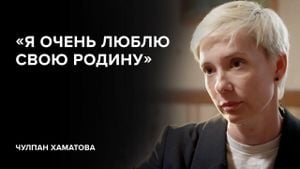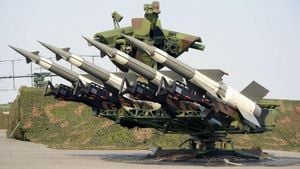Saudi Arabia is undergoing significant transformations through its ambitious Vision 2030 initiative, which aims to reshape the kingdom’s economy and society. Since its launch in 2016, Vision 2030 has been driven by Crown Prince Mohammed bin Salman and focuses on reducing the country's dependency on oil revenues by diversifying the economy.
A major objective of Vision 2030 is to establish Saudi Arabia as a global hub for trade and investment. According to the Saudi Press Agency, "Saudi Arabia strives to position itself as a global hub for trade and investment, seeking to create more than 1.6 million jobs by 2030." This aligns with the kingdom's goal of generating new jobs and fostering opportunities across various sectors.
The initiative encompasses extensive economic reforms, including efforts to reform the taxation system, attract foreign investment, and support small and medium enterprises (SMEs). The Saudi government is also focusing on the entertainment and tourism sectors, as well as technology, to stimulate growth and provide new job opportunities to its citizens.
One of the landmark projects under Vision 2030 is NEOM, a $500 billion futuristic city planned to be built along the Red Sea, which is touted as the centerpiece of the kingdom's economic diversification strategy. NEOM is expected to incorporate advanced technologies and attract global talent, thereby positioning Saudi Arabia at the forefront of future industries.
Private-public partnerships are central to the implementation of these reforms. To achieve its goals, the government has been encouraging investment from both local and international investors by providing incentives such as tax breaks and regulatory support. This proactive approach aims to create a more vibrant private sector, which is key to sustaining economic growth.
While the Vision 2030 plan has been met with optimism, it also faces challenges. For example, the need to balance social reforms with traditional values continues to be a topic of discussion among various stakeholders. Many wonder how the kingdom will navigate its cultural identity amid rapid advancements.
Crown Prince Mohammed bin Salman emphasized the broader scope of Vision 2030, stating, "Vision 2030 is not just about economic reforms; it is about the transformation of our society as well." This statement reflects the initiative's dual focus on economic prosperity and societal advancements, aiming to improve the quality of life for Saudi citizens.
Recent strides under Vision 2030 include the successful rollout of events such as the Riyadh Season, which aims to promote culture and entertainment, drawing both locals and internationals to experience Saudi Arabia’s changing social fabric. These events serve not only to provide entertainment but also to present the kingdom's potential as a dynamic destination for global tourism.
By 2023, several sectors have shown marked improvement, demonstrating the potential of Vision 2030 to reshape the Saudi economy for sustainable growth. Various frameworks have been established to promote women's empowerment and greater workforce participation, which is pivotal for future progress.
Looking forward, the government continues to seek new ways to innovate and expand the country's economic horizon. Vision 2030 not only aims to secure the kingdom's economic future but also to position it favorably on the global stage as it transitions to a knowledge-based economy.
While there remains much work to be done, the vision outlined holds promise and hope for the citizens of Saudi Arabia—marking the dawn of a new era rooted in diversity, innovation, and growth.



